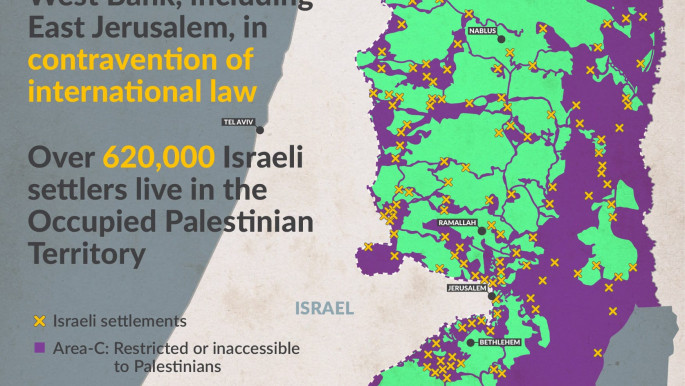Palestinian Authority condemns Trump’s plan to host Israeli leaders for Middle East peace discussions
The Palestinian Authority has condemned plans by US President Donald Trump to host Israeli Prime Minister Benjamin Netanyahu and his chief election rival, Benny Gantz for discussions in Washington next week regarding Trump’s latest plans for Middle East peace.
"This step only reaffirms our absolute rejection of what the US administration has done so far, particularly the recognition of Jerusalem as Israel's capital," Palestinian President Mahmoud Abbas's spokesman said in a statement.
Vice President Mike Pence first announced the invitation to right-wing Netanyahu and Gantz, head of the Blue and White party during a visit to Jerusalem to mark 75 years since the liberation of the Auschwitz concentration camp.
Both Gantz and Netanyahu have vowed to annex the Jordan Valley region, which makes up one-third of the West Bank, to Israel.
Speaking at the new US embassy in Jerusalem, Pence said Trump "asked me to extend an invitation to Prime Minister Netanyahu to come to the White House next week to discuss regional issues, as well as the prospect of peace here in the Holy Land."
The White House said the meeting would be an "opportunity to discuss our shared regional and national security interests", hailing the "strong" partnership between Israel and the United Sates.
Netanyahu welcomed the invitation, saying Trump "is seeking to give Israel the peace and security it deserves".
"With such friends in the White House ... we should get as broad a consensus as possible around the efforts to achieve security and peace for the state of Israel," he said.
Trump, whose team has long been working on the outlines of a secretive peace plan, has repeatedly boasted that he is the most pro-Israeli US president in history.
Trump tweeted later that he looked forward to the talks but that "reports about details and timing of our closely-held peace plan are purely speculative".
Abbas cut off all ties with the US in December 2017 after Trump broke with decades of international consensus and recognised Jerusalem as Israel's capital.
Israel has illegally occupied Palestinian east Jerusalem since 1967 and Palestinians see it as the capital of their future state.
Prior to Donald Trump’s administration, the US and other world powers agreed that the city’s fate
should be settled via negotiations.
‘It is all about Israel’
Trump came to power in 2017 promising to broker an Israeli-Palestinian peace deal, which he labelled the "ultimate deal".
But he has since taken a series of decisions that outraged the Palestinians, including cutting hundreds of millions in aid and declaring that the US no longer considered Israel's West Bank settlements illegal.
His plan for ending the Israeli-Palestinian conflict is believed to revolve around encouraging massive economic investment.
After many postponements, the peace initiative was expected in the autumn.
But it was delayed after September 2019 elections in Israel proved inconclusive, and it is not expected to be released until after new Israeli elections on March 2.
Israeli media discussed what they said were leaked outlines of the deal on Thursday, saying the US had acquiesced to many key Israeli demands.
Pence was speaking shortly after visiting the Western Wall, the Jewish sacred site in east Jerusalem which adjoins the Al-Aqsa Mosque alongside Netanyahu and Gantz.
The meeting on Tuesday coincides with an expected session in the Israeli parliament to discuss Netanyahu's potential immunity from prosecution over a series of corruption charges.
Israeli media speculated that Trump had chosen to announce the event in support of Netanyahu's election bid -- the third in a year.
Husam Zomlot, former head of the Palestinian mission in the US, told AFP that Trump hosting two Israeli leaders and no Palestinians showed the meeting was about influencing domestic Israeli politics, rather than a genuine attempt at peace.
"This is confirmation of their policy from the beginning - it is all about and for Israel."





 Follow the Middle East's top stories in English at The New Arab on Google News
Follow the Middle East's top stories in English at The New Arab on Google News


